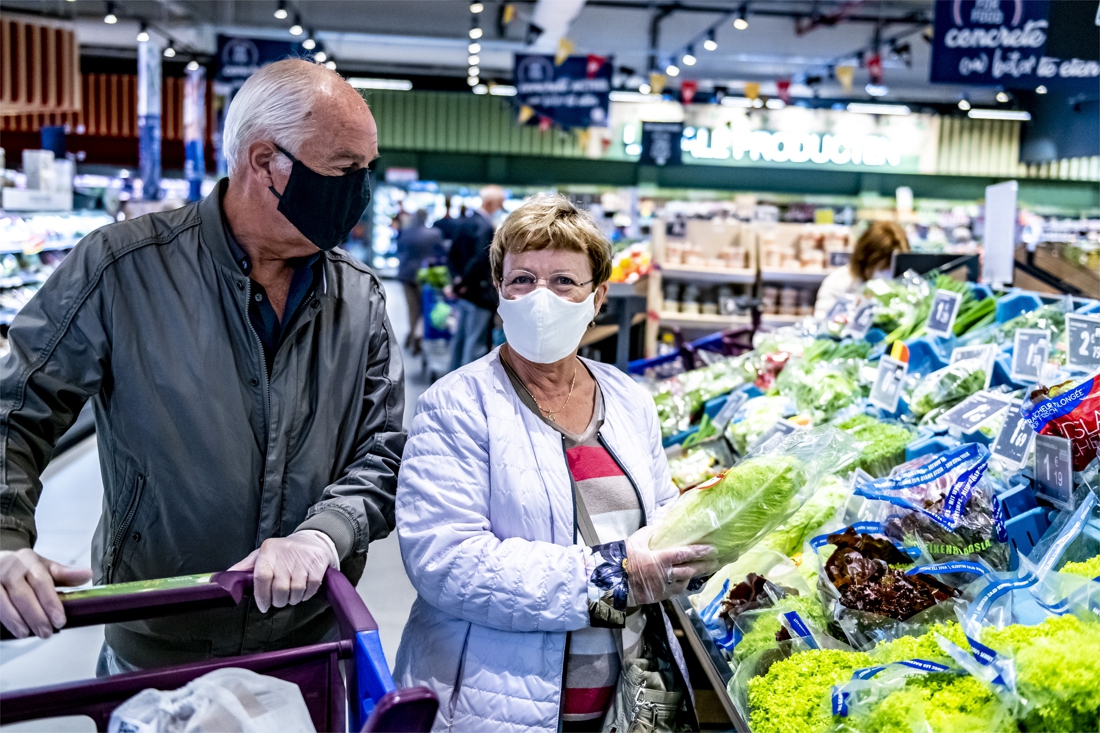As cooler weather descends on New York City and raises fears of a possible second wave of coronavirus, nursing homes and adult care facilities are hoping for better access to tests, faster test results, stocks of personal protective equipment (PPE) and a better understanding of the virus will make residents safer.
But after a disastrous spring, fears persist about how these facilities can better protect their residents if infection rates soar.
Supporters of nursing homes and assisted care facilities in New York City say that now testing and PPE is more widely available and they have learned more about how to fight the virus.
“It really is a whole different world from April,” said James Clyne Jr., president of LeadingAge New York, which represents the state’s nonprofit and government retirement homes.
Health facilities, including nursing homes, are now required to have stocks of PPE and make a pandemic contingency plan available to the public. Visiting restrictions for nursing home residents have even been relaxed slightly recently if they comply with other requirements and have had no new infections for 14 days.
To prepare for a possible second wave, Scott LaRue, the president and CEO of ArchCare, a continuing care organization that is part of the Catholic Archdiocese of New York and operates several nursing homes in the city, hired additional staff: a medical director of infectious diseases, an infection control nurse and eight infection nurses at the program and facility level. Staff in various facilities have been trained in how to respond to an outbreak.
“That’s not to say we didn’t have infection control nurses before, but we didn’t have the depth or level of expertise,” LaRue said.
He spent over $ 2 million on PPE and millions more on testing and temporary staff. By law, nursing home staff are tested weekly, and LaRue rented a warehouse to store PPE worth months; there are additional 60-day stocks in each nursing home.
Also see: New lockdowns ordered in New York neighborhoods with increased coronavirus cases
Nursing facilities have had the summer to develop comprehensive plans to protect their residents. When the coronavirus swept through New York City in March and April, killing thousands of people, it quickly became clear that the elderly and infirm were particularly vulnerable.
To date, nearly 6,500 nursing home residents and nearly 180 adult care facility residents in New York state have been confirmed or presumed dead from coronavirus. There is reason to believe that officially these figures are underestimated. There are 613 retirement homes and 540 adult care facilities in New York state, according to the DOH.
Today, many nursing homes have changed their protocols for testing and moving residents, according to Michael Balboni, executive director of the Greater New York Health Care Facilities Association, a trade association for long-term care providers. .
The nursing homes he is in contact with are now making greater use of telehealth technology to allow patients to see doctors and have instituted screening protocols – if a patient has a pending coronavirus test result, he is treated as if he had tested positive. According to Balboni, there is also a better understanding of the effective use of PPE and the transportation of patients who need to leave the facility for medical care.
“Now we’re very, very aware of it. And we’re really looking for decontamination records for the transport vehicle, making sure everyone handling the patient has the proper PPE, ”Balboni said. “There are now rules about when you enter a room that has COVID, you must re-dress when entering and re-dress when exiting. So these are all things that just haven’t happened before.
Meanwhile, the New York State Department of Health (DOH) has performed more than 1,900 inspections at retirement homes and adult care facilities since March 1 to verify that they are following the infection control and agency guidelines, said Jeffrey Hammond, a public information official. with the DOH.
“By adhering to DOH guidelines, facilities are taking appropriate measures to protect their residents from COVID-19,” he said.
However, struggles persist as nursing homes and assisted care facilities prepare for winter.
LaRue is most concerned about a “double illness,” in which the coronavirus and the annual flu will be active in the population at the same time.
Test turnaround times, although recently improved for some nursing homes, are not instantaneous. Until August, the average wait time for the coronavirus test for ArchCare staff and residents was six days. Recently, the average wait time has been just under two days.
Coronavirus Update: The death toll in the United States stands at 217,000; Nature magazine becomes last science journal to blow up Trump’s pandemic management
The costs of PPE, tests and other preparations have been enormous for long-term care providers, and access to PPE remains an issue, according to Clyne Jr.
“The N-95 masks are still the biggest problem I hear from some members, getting access to them,” he added. “Sometimes you can’t get gloves… other times, for some reason, they’re dresses.
In early August, Lieberman testified at a state legislative hearing that, among other things, the state should ensure compliance with coronavirus safety in adult care homes with unannounced in-person inspections, relocate residents in hotels and motels to reduce density when necessary, deploy additional staff when necessary, and organize funding for tablets and laptops for adult residents.
If a second wave of coronavirus hits, he hopes for more transparency on deceased residents and that this information will be provided to family members.
“It is extremely important that we have a clear idea of what is going on in facilities to identify hot spots, educate staff and cohort measures to reduce the spread of infection,” he added.
–


